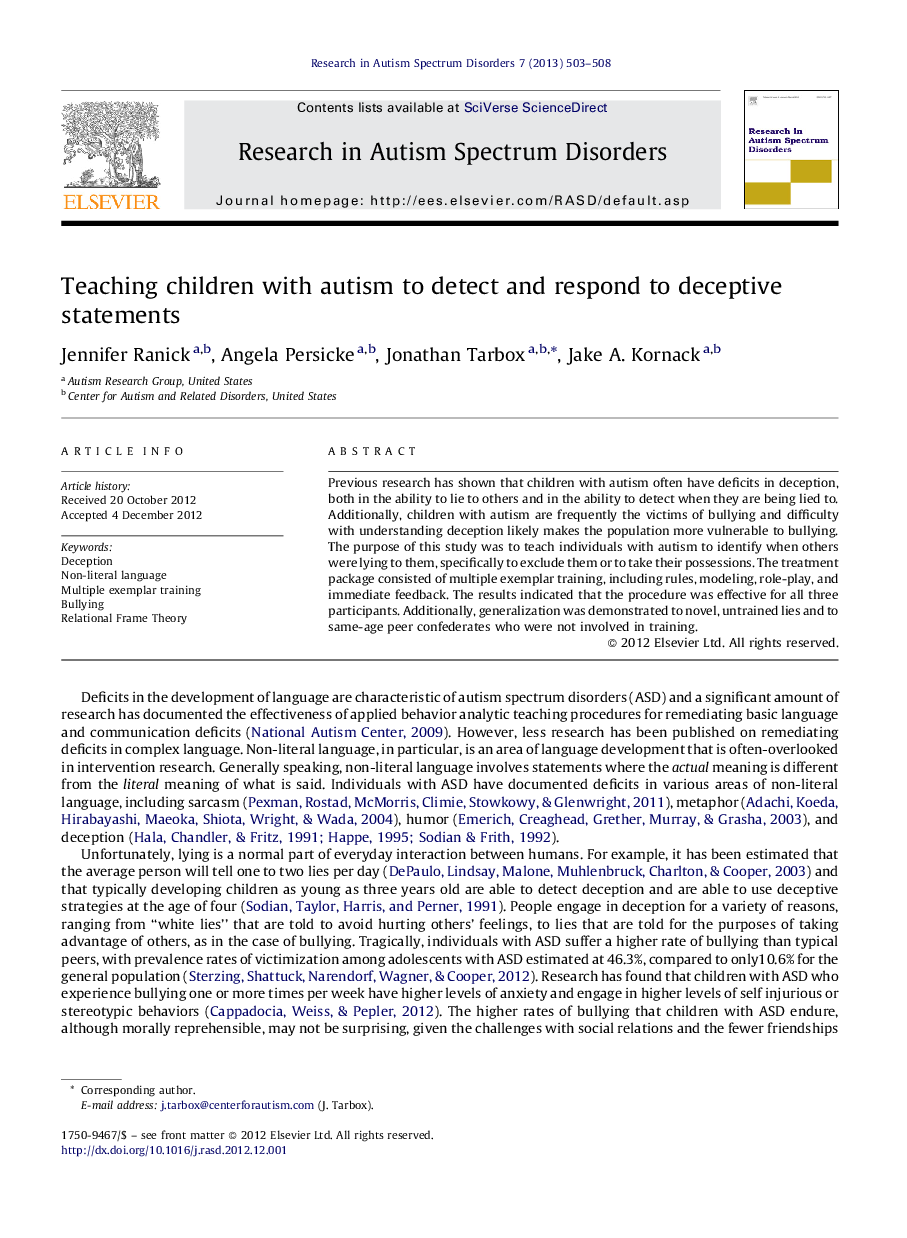| Article ID | Journal | Published Year | Pages | File Type |
|---|---|---|---|---|
| 370465 | Research in Autism Spectrum Disorders | 2013 | 6 Pages |
Previous research has shown that children with autism often have deficits in deception, both in the ability to lie to others and in the ability to detect when they are being lied to. Additionally, children with autism are frequently the victims of bullying and difficulty with understanding deception likely makes the population more vulnerable to bullying. The purpose of this study was to teach individuals with autism to identify when others were lying to them, specifically to exclude them or to take their possessions. The treatment package consisted of multiple exemplar training, including rules, modeling, role-play, and immediate feedback. The results indicated that the procedure was effective for all three participants. Additionally, generalization was demonstrated to novel, untrained lies and to same-age peer confederates who were not involved in training.
► Deficits in the ability to understand deception are common in individuals with ASD. ► Lying is a normal part of social interactions and little previous research has taught deception comprehension. ► This study used multiple exemplar training to teach three young children with autism to understand deception. ► The procedure was effective for all participants and generalization was found across novel people and lies. ► The results are promising for a behavioral approach to teaching nonliteral language comprehension and other forms of cognition to individuals with ASD.
